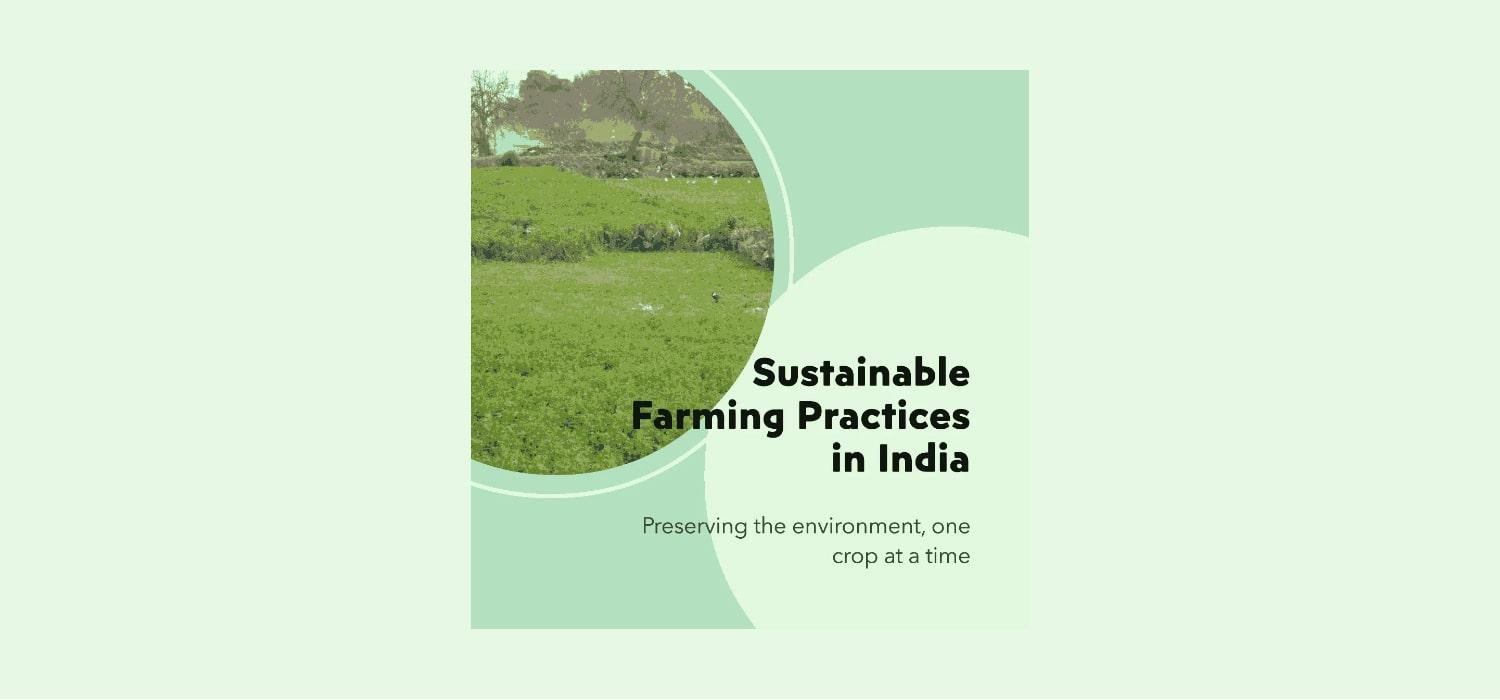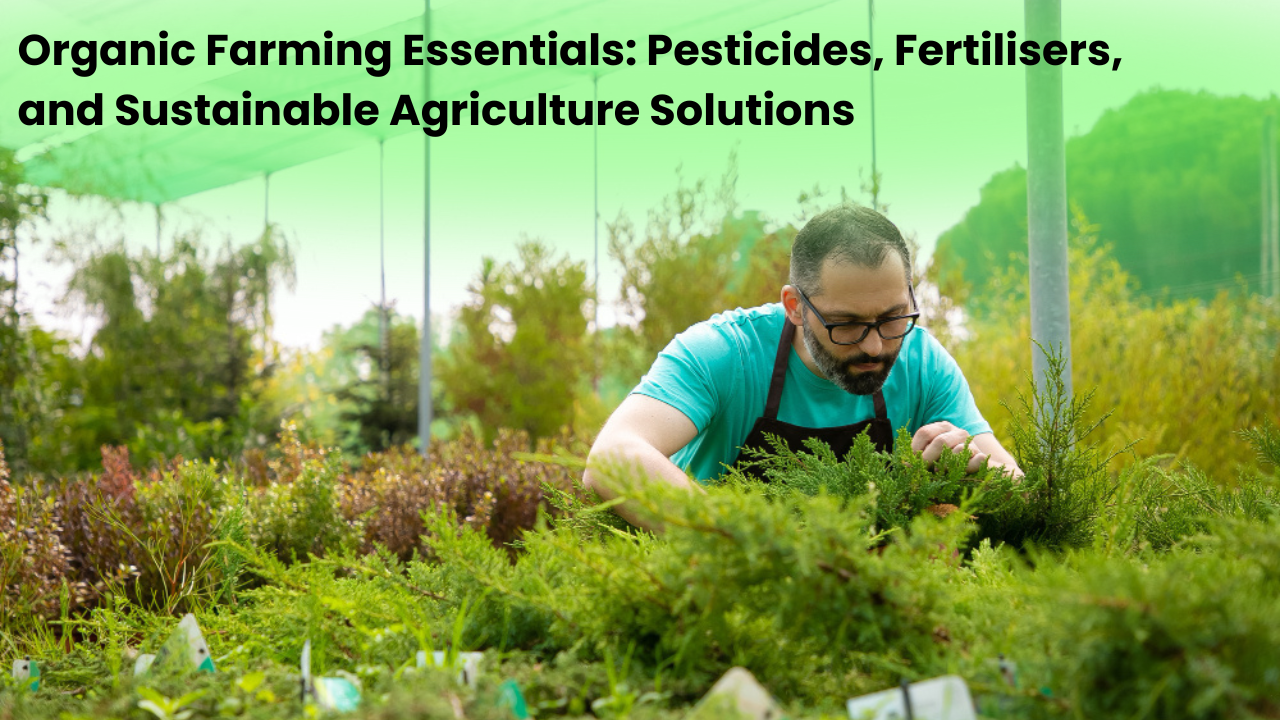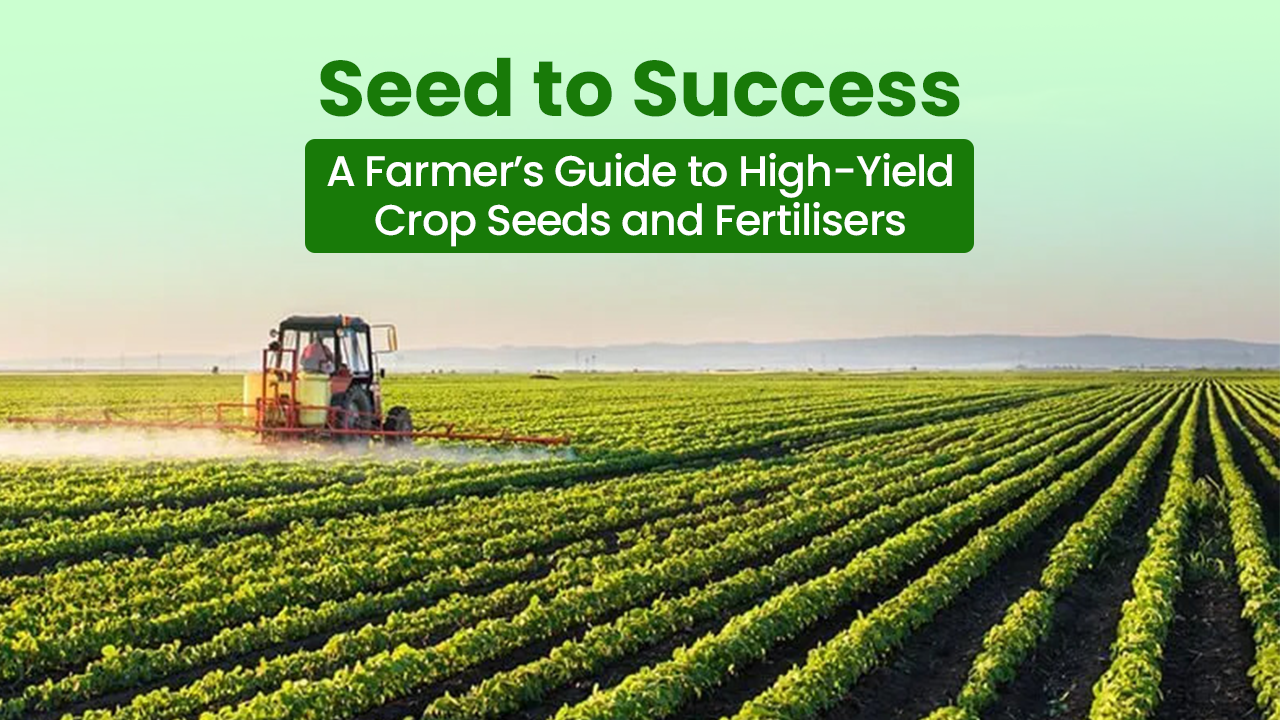Discover essential agriculture tools and implements for efficient farming. Learn about hand tools, tractor implements, irrigation equipment, and maintenance tips.
A Beginner's Guide to Sustainable Farming Practices in India

Introduction
Sustainable farming practices are becoming increasingly important in India, where agriculture has been the backbone of the economy for centuries. With a growing population and environmental concerns, it is crucial to adopt farming methods that are not only productive but also environmentally friendly. This beginner's guide will delve into the world of sustainable farming practices in India, providing insights, techniques, and tips for those looking to embark on this eco-conscious journey.
Understanding Sustainable Farming
What is Sustainable Farming?
Sustainable farming, also known as eco-friendly or organic farming, is an agricultural approach that aims to produce food while preserving the environment and ensuring the well-being of future generations. It involves minimizing the use of synthetic chemicals, optimizing resource management, and fostering biodiversity.
Why is Sustainable Farming Important in India?
India's agricultural sector is vast, but it faces numerous challenges, including soil degradation, water scarcity, and the adverse effects of chemical fertilizers and pesticides. Sustainable farming practices are vital to mitigate these issues, enhance food security, and promote rural development.
Key Sustainable Farming Practices
1. Organic Farming
Organic farming is at the core of sustainable agriculture. It eliminates the use of synthetic chemicals and genetically modified organisms (GMOs) in crop production. Instead, organic farmers rely on natural fertilizers, compost, and crop rotation to maintain soil fertility and prevent pests and diseases.
2. Crop Rotation
Crop rotation is a practice where different crops are planted in the same field over time. This helps improve soil health by preventing the depletion of specific nutrients and reducing the buildup of pests and diseases. Crop rotation can also enhance crop yields and reduce the need for chemical inputs.
3. Agroforestry
Agroforestry integrates trees and shrubs into agricultural landscapes. This not only provides additional sources of income through timber and fruit production but also helps in soil conservation, carbon sequestration, and biodiversity conservation. Farmers in India are increasingly adopting agroforestry practices to diversify their income sources.
4. Rainwater Harvesting
Water scarcity is a significant concern in many parts of India. Sustainable farmers employ rainwater harvesting techniques to collect and store rainwater for irrigation and domestic use. This practice helps reduce dependence on groundwater and ensures a more reliable water supply.
5. Integrated Pest Management (IPM)
Integrated Pest Management is a holistic approach to pest control that minimizes the use of chemical pesticides. Farmers use a combination of biological control methods, crop rotation, and the planting of pest-resistant varieties to manage pests effectively while protecting the environment.
6. Vermicomposting
Vermicomposting is a method of converting organic waste into nutrient-rich compost using earthworms. It's an eco-friendly way to recycle kitchen and farm waste while enhancing soil fertility. Many sustainable farmers in India use vermicomposting to improve soil structure and nutrient content.
7. Sustainable Livestock Farming
Livestock farming is an integral part of Indian agriculture. Sustainable livestock practices focus on animal welfare, reducing methane emissions, and optimizing feed efficiency. These practices not only benefit the environment but also ensure the production of healthier and more ethical meat and dairy products.
Benefits of Sustainable Farming
Sustainable farming offers a multitude of benefits for farmers, consumers, and the environment:
- Environmental Conservation: Reduced chemical use, soil conservation, and biodiversity promotion lead to a healthier and more resilient environment.
- Healthier Food: Organic and sustainably grown food is free from harmful chemical residues, making it safer and healthier for consumers.
- Economic Viability: Sustainable farming practices can lead to higher crop yields and reduced input costs, ultimately improving the economic well-being of farmers.
- Climate Change Mitigation: Sustainable practices, such as agroforestry and reduced emissions from livestock, contribute to climate change mitigation.
- Enhanced Soil Fertility: Crop rotation, organic farming, and vermicomposting improve soil fertility over time, ensuring long-term agricultural productivity.
- Community Development: Sustainable farming can empower local communities, create jobs, and enhance rural livelihoods.
Conclusion
Embarking on a journey into sustainable farming practices in India is not only beneficial for the environment but also a step towards a more prosperous and healthier future. By adopting organic farming, crop rotation, agroforestry, and other sustainable techniques, Indian farmers can ensure food security, promote biodiversity, and contribute to the nation's overall well-being.
Frequently Asked Questions (FAQs)
1. Is sustainable farming more labor-intensive than conventional farming?
Sustainable farming practices can require more initial effort and labor, but they often lead to reduced labor and input costs in the long run, making them economically viable for farmers.
2. Are sustainable farming practices suitable for small-scale farmers in India?
Yes, sustainable farming practices can be adapted to suit the needs and resources of small-scale farmers in India. In fact, many small-scale farmers have successfully embraced these practices to improve their livelihoods.
3. How can consumers support sustainable farming in India?
Consumers can support sustainable farming by choosing to buy organic and sustainably produced food products, advocating for sustainable agriculture policies, and spreading awareness about the benefits of eco-friendly farming practices.
 English
English




